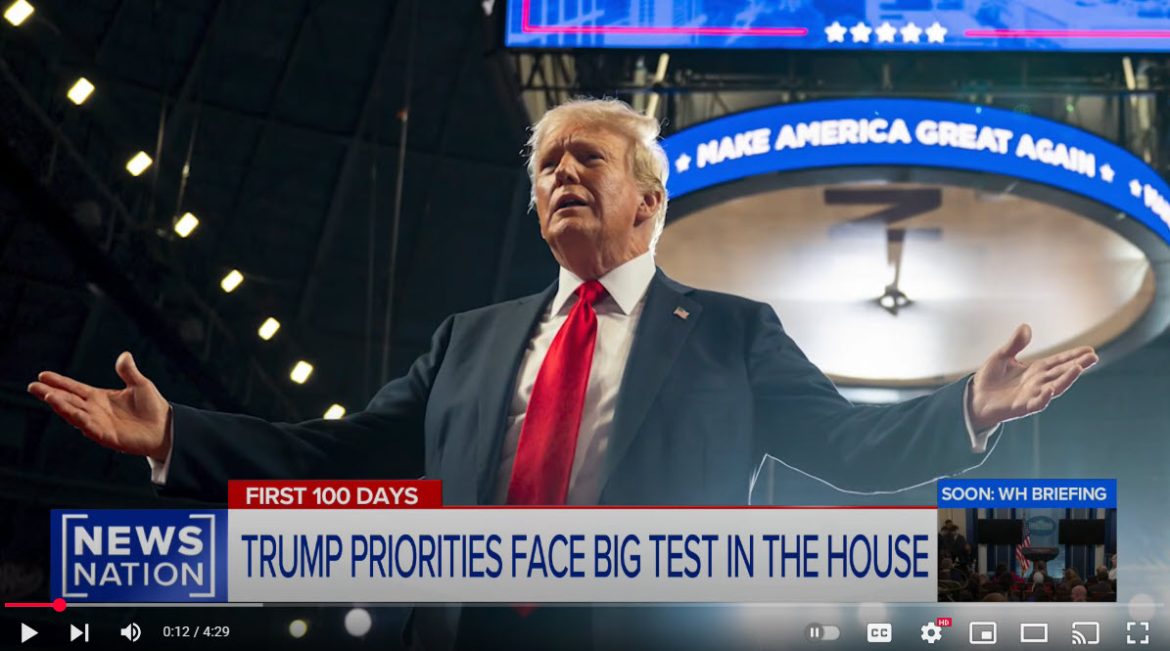President Donald Trump’s ambitious budget proposal, encompassing significant tax cuts and heightened border security measures, is encountering substantial resistance within Congress. The plan, which aims to extend the 2017 Tax Cuts and Jobs Act, allocate $175 billion for immigration enforcement, and increase defense spending by $150 billion, has sparked debate among both Republicans and Democrats.
House Speaker Mike Johnson is striving to rally Republican support for the budget resolution. However, internal divisions have emerged, with some GOP members expressing concerns over the projected $4.5 trillion deficit increase and proposed $2 trillion in spending cuts over the next decade. These cuts target programs such as Medicaid and food assistance, leading to apprehension about potential impacts on constituents. Johnson acknowledged the uncertainty of the vote’s timing, stating, “There may be a vote tonight, there may not be.”
The Senate has already passed a $345 billion budget framework, focusing on border security, energy deregulation, and defense. This measure, however, excludes the tax cuts central to President Trump’s agenda, highlighting a strategic divergence between the two chambers. Senate Republicans propose addressing tax policy separately, suggesting a more measured approach compared to the comprehensive package favored by House leadership.
Democrats uniformly oppose the budget proposal, criticizing it as disproportionately beneficial to the wealthy while undermining essential social programs. They argue that the proposed cuts to Medicaid and food assistance will adversely affect vulnerable populations, particularly in districts heavily reliant on these services. This opposition, combined with Republican dissent, places the budget’s passage in jeopardy.
The legislative impasse underscores the complexities of advancing President Trump’s policy priorities in a divided Congress. As negotiations continue, the administration and congressional leaders must navigate intra-party disagreements and bipartisan opposition to achieve a resolution that aligns with the President’s agenda while addressing the concerns of lawmakers and their constituents.
Sources:
- House advances Trump’s ‘big, beautiful’ agenda bill – but GOP opposition could make path difficult
- House Budget Vote Leaves Republicans With 2 Bad Options: Angry Voters or Angry Trump
- US House Speaker says budget vote may not happen Tuesday
- US House Republicans face new woes on Trump tax cut plan
- Senate Fails to Put Any Checks or Balances on Trump
- US Senate passes Republican border security bill without Trump tax
- Speaker Johnson tries to push Trump’s agenda forward, but votes in
- Senate passes budget resolution; House plans to vote on its own
- House Republicans vote on critical budget bill Tuesday – WXII
- Mike Johnson’s moment of truth
- GOP Budget Reconciliation Plan —Cutting Essential Programs To
- 2025 United States federal budget
- 2023–24 U.S. House legislative coalition
- 2024 United States federal budget
- Mike Johnson
- National Defense Authorization Act for Fiscal Year 2025



